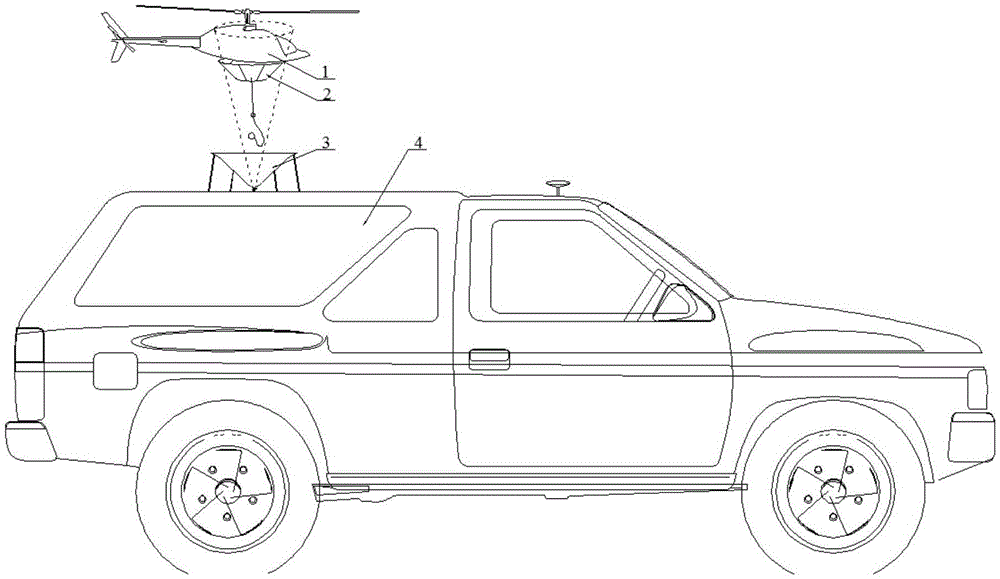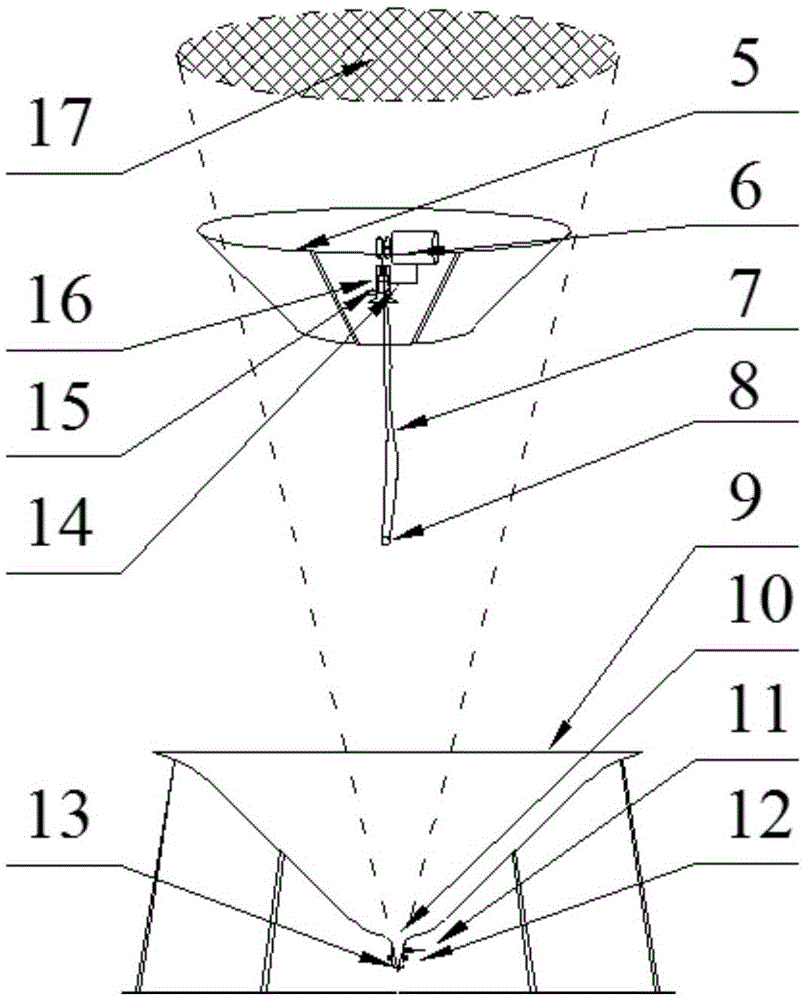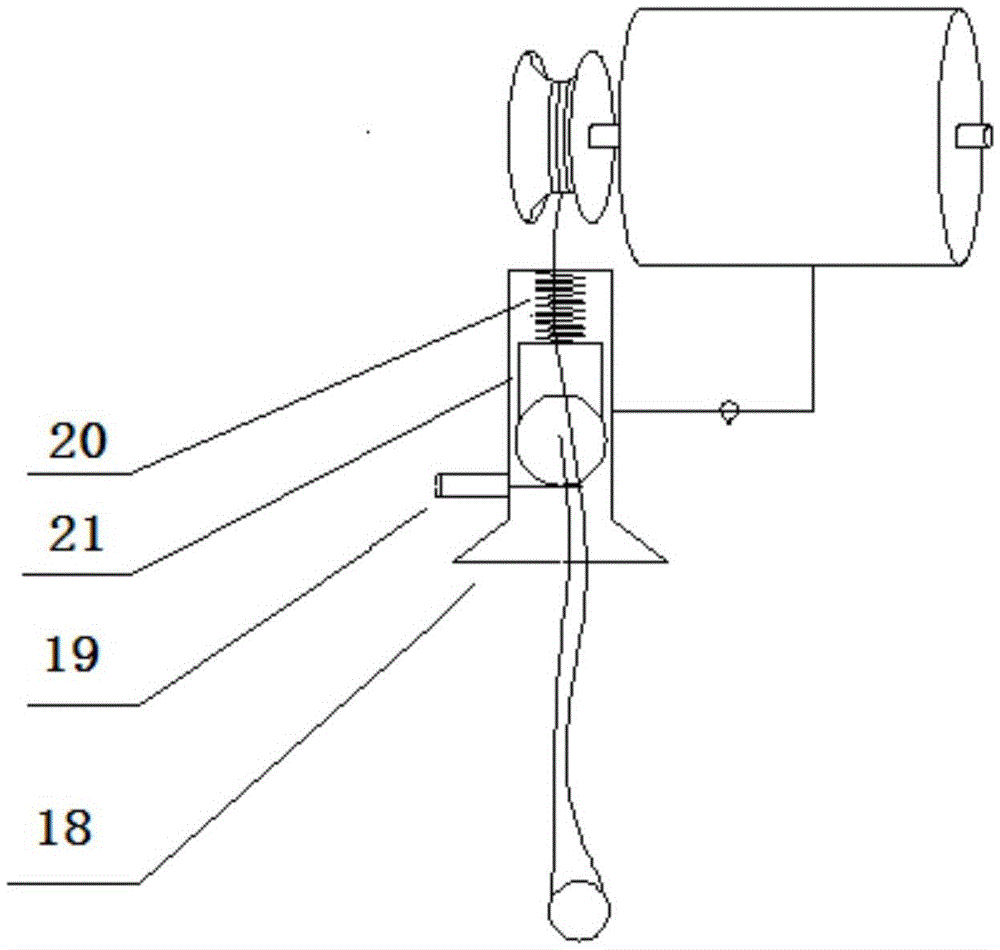Rapid take-off and landing device for aircraft
A technology for aircraft and airborne devices, applied in the field of take-off and landing devices, can solve problems such as manual locking and inapplicability, and achieve the effects of improving efficiency, reducing design difficulty, avoiding dynamic tracking and precise alignment problems
- Summary
- Abstract
- Description
- Claims
- Application Information
AI Technical Summary
Problems solved by technology
Method used
Image
Examples
Embodiment 1
[0040] combine figure 1 , taking the unmanned helicopter landing on the top of the vehicle as an example, the rapid take-off and landing device of the aircraft includes an airborne device 2 and a vehicle-mounted device 3;
[0041] combine figure 2 , the airborne device 2 includes a landing boss 5, a traction rope 7, a traction ball 15, a rope hammer 8, an electric winch 6, a ball ejector 16, a photoelectric receiver 14, and a take-off and landing controller. The bottom of the cabin of the human helicopter 1, the electric winch 6, the photoelectric receiver 14 and the take-off and landing controller are all arranged in the landing boss 5, and the electric winch 6 is arranged on the upper part of the center position in the landing boss 5 through a bracket; the traction ball 15 Connect to the electric winch 6 through the traction rope 7, and the rope hammer 8 is worn on the traction rope 7;
[0042] combine image 3, the ball ejector is arranged on the electric winch 6, and t...
PUM
 Login to View More
Login to View More Abstract
Description
Claims
Application Information
 Login to View More
Login to View More - R&D
- Intellectual Property
- Life Sciences
- Materials
- Tech Scout
- Unparalleled Data Quality
- Higher Quality Content
- 60% Fewer Hallucinations
Browse by: Latest US Patents, China's latest patents, Technical Efficacy Thesaurus, Application Domain, Technology Topic, Popular Technical Reports.
© 2025 PatSnap. All rights reserved.Legal|Privacy policy|Modern Slavery Act Transparency Statement|Sitemap|About US| Contact US: help@patsnap.com



